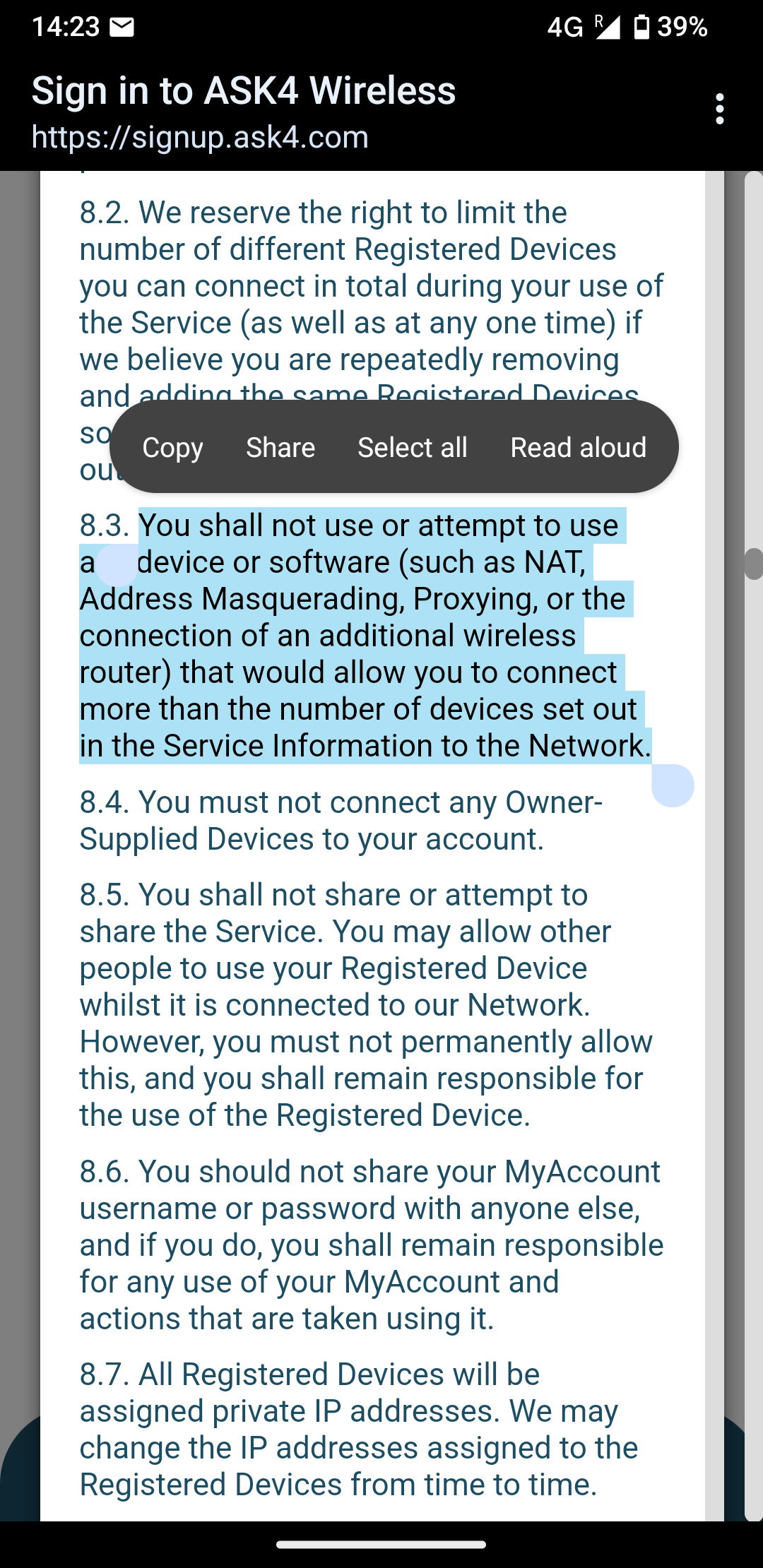this post was submitted on 07 Sep 2024
472 points (92.6% liked)
Technology
70041 readers
25 users here now
This is a most excellent place for technology news and articles.
Our Rules
- Follow the lemmy.world rules.
- Only tech related news or articles.
- Be excellent to each other!
- Mod approved content bots can post up to 10 articles per day.
- Threads asking for personal tech support may be deleted.
- Politics threads may be removed.
- No memes allowed as posts, OK to post as comments.
- Only approved bots from the list below, this includes using AI responses and summaries. To ask if your bot can be added please contact a mod.
- Check for duplicates before posting, duplicates may be removed
- Accounts 7 days and younger will have their posts automatically removed.
Approved Bots
founded 2 years ago
MODERATORS
you are viewing a single comment's thread
view the rest of the comments
view the rest of the comments

I don't know much about networking but that page seems to be about someone else setting up a dhcp server without the knowledge of the administrators or the users. In op's case the concerns about mitm attacks don't apply and the other concerns sound like problems that could arise in cases of misconfiguration or if the users aren't aware they're connected to a different network. I also couldn't see anything about it affecting the main network's performance
I mean, it’s all right there in the first two paragraphs. Keep in mind that by DHCP server we aren’t talking about something specifically set up by people with malicious intent. A home router is a DHCP server when not configured for pass through. Students who don’t know how routers actually work (we can’t all be IT nerds, lol) plug them into their dorm Ethernet jack, and now you’ve got an unauthorized device offering IP addresses that conflict with the authorized DHCP servers, which can quickly start causing issues with any new devices trying to connect to the network, and existing devices as their DHCP leases expire. Also keep in mind that we’re talking about a college network that will likely have local network resources for students like shared drives that would not be accessible to anyone connecting through the rogue device. Your IT department will quickly start getting complaints about the network that are caused by an access point you have no control over.
I see, I thought routers knew not to do dhcp on the Wan port
Typically they do. Which is great until you get a student who doesn’t understand WAN vs LAN and plugs both connections into the LAN ports. Never underestimate the power of a Stupid User.
They do know enough to not send DHCP leases upstream..
If you plug the dorm ethernet jack into the LAN side of a consumer router, there's a chance they don't.
Sure, you can catch this if you watch the dhcp leases your router is handing out, but..
I'm assuming OP is at least smart enough to know that the port that's on its own/a different color/somehow different from the others is the one that goes into the wall. It sounds like they have at least that level of competence.
I’m sure OP is given the more technical nature of Lemmy users. But this thread is about the average college student with no networking knowledge.
ETA: Sorry that I specified you weren’t talking about the same thing the rest of us were in this thread.
Which is all well and good until you get someone who plugs both connections into the LAN ports.
Downvoting just because I pointed out a scenario you didn’t think of isn’t so classy.
No. I'm downvoting because your first comments stated it will happen if the router is set up to offer leases. Not that it could happen if a user ignores the quick start guide that says "plug this port into the wall." Then got all pissy with that other guy who pointed out that your article was about DHCP servers, not routers.
I’m not getting pissy about anything. That’s projection on your part, reading a tone that wasn’t there. Just because you’re in a bad mood today doesn’t mean the rest of the internet is.